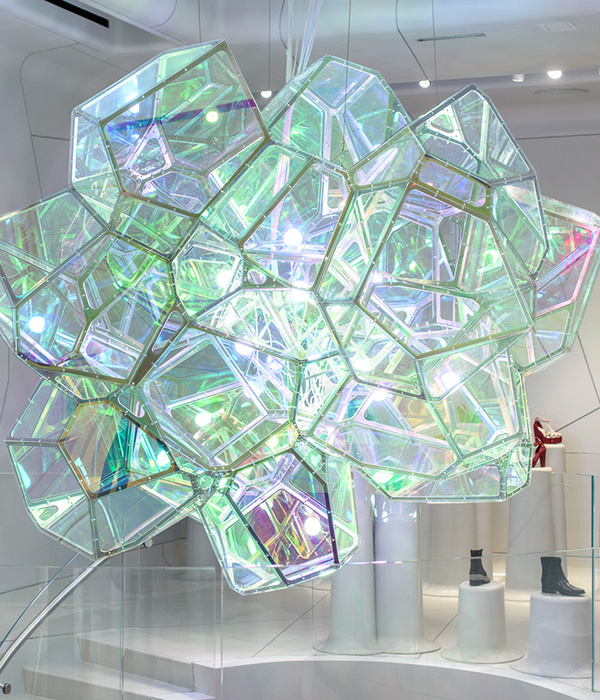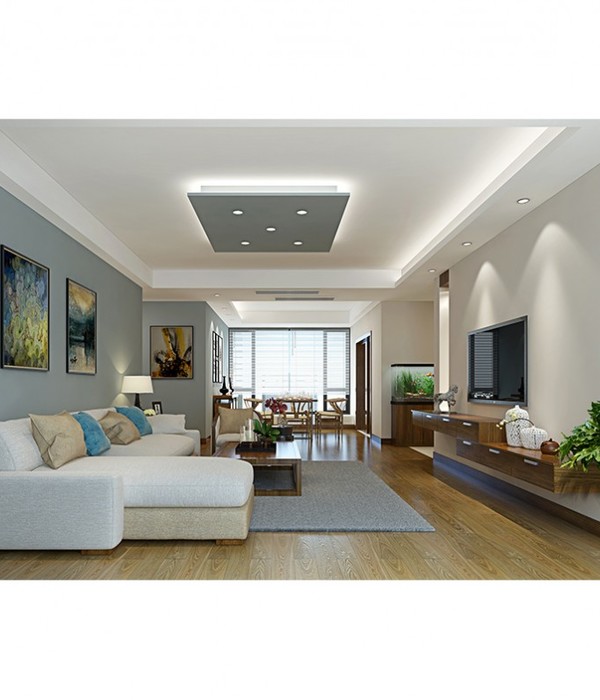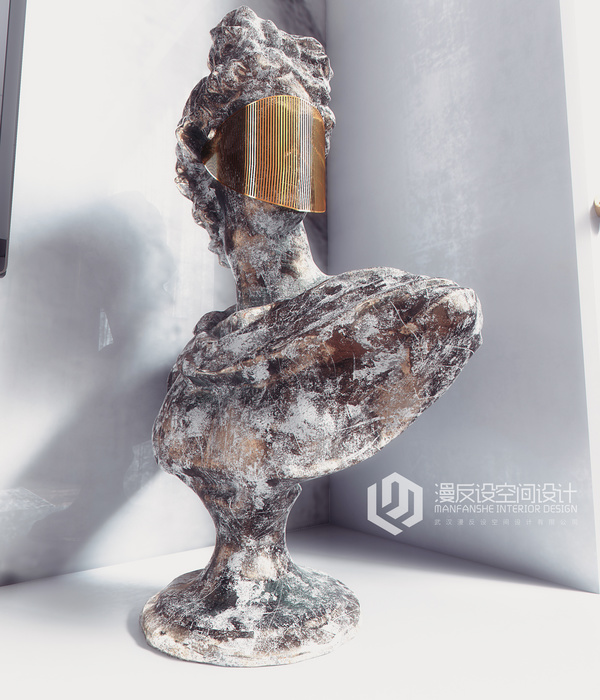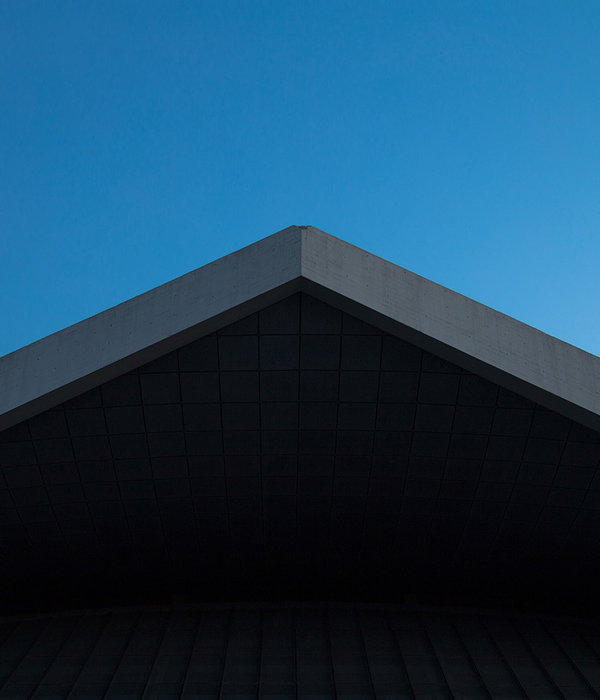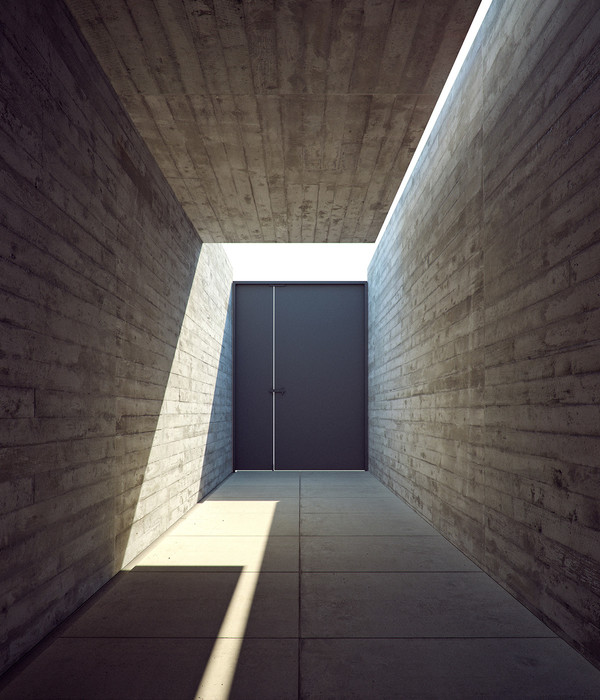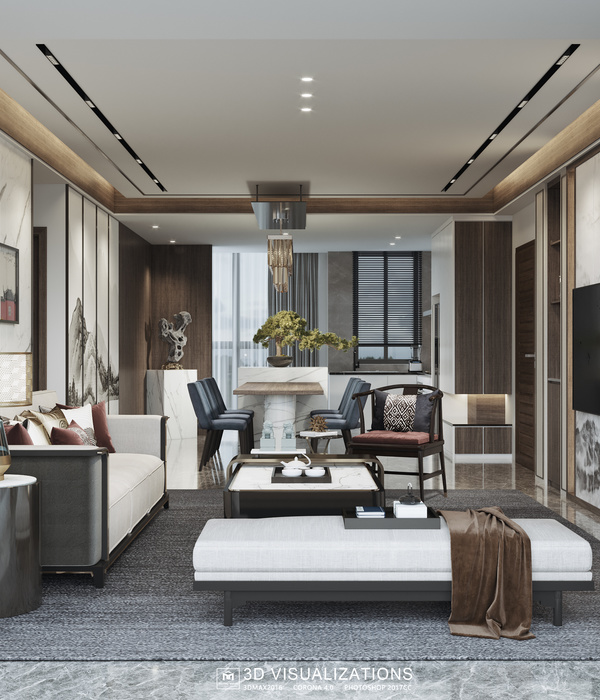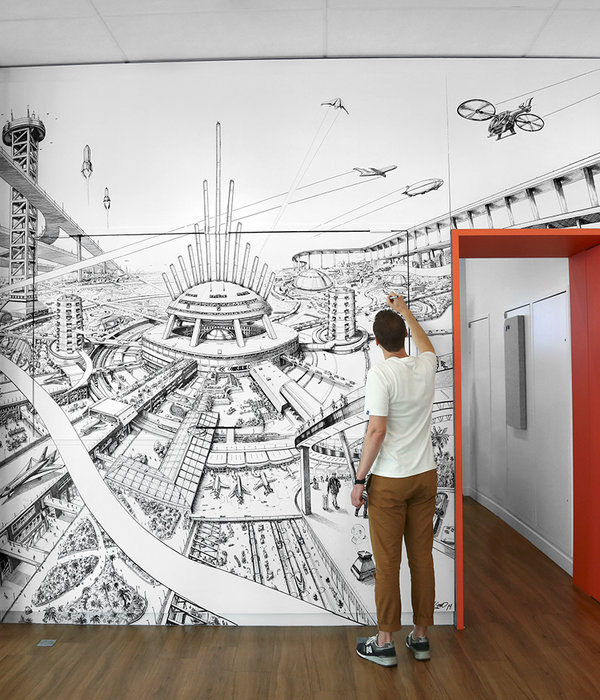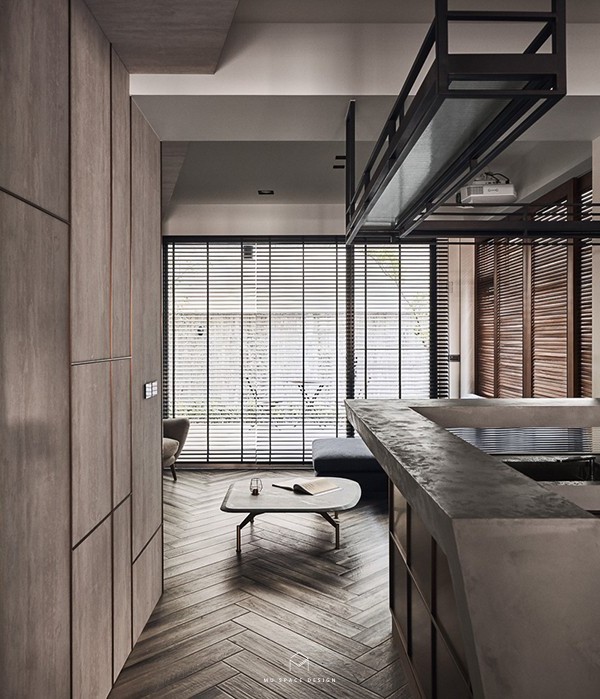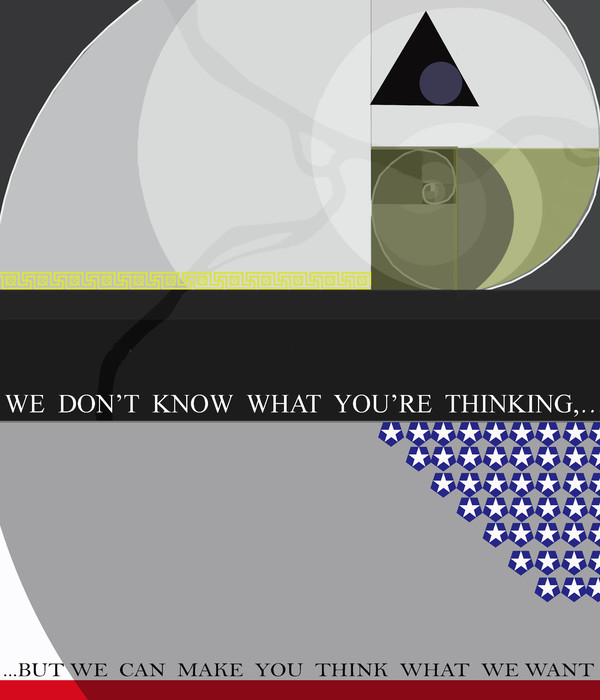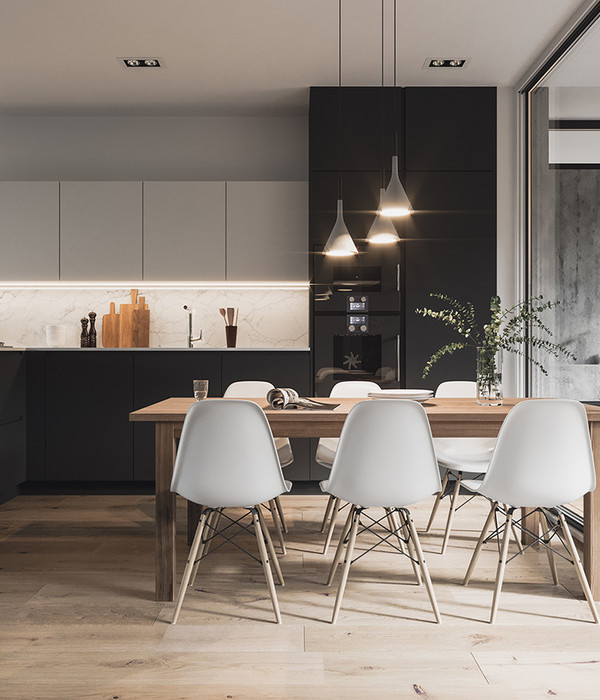承包商PB建筑结构工程结构有限责任公司景观环境调查咨询更多规格更少规格
Contractor PB Construction Structural Engineer Structures P.E., LLP Landscape Environmental Survey Consulting More Specs Less Specs
© Paul Finkel | Piston Design
保罗·芬克尔活塞设计
架构师提供的文本描述。作为一个可持续的农村社区的原型,希尔乡村之家作为一座灯塔来展示什么是可能的:一个在农村环境中自我维持的家,几乎独立于城市的水和能源。这座私人住宅坐落在一片遍布德克萨斯州的乡村草地上,由一系列参差不齐的屋顶山峰组成,这些山峰是由周围山丘的起伏所激发的。“庇护所”被主人亲切地称为“庇护所”,是一对积极的两位被任命为牧师的人,预算非常微薄,这种现代的农舍习俗是一个地方,可以把人们聚集在一起,在一个负责任、可持续的环境中找到精神上的更新。
Text description provided by the architects. Conceived as a prototype for a sustainable rural community, the Hill Country House serves as a beacon to show what could be: a self-sustaining home in a rural setting, virtually independent of municipal water and energy. Situated on a sweeping Texas Hill Country meadow, this private residence is defined by a series of jagged roof peaks inspired by the rise and fall of the surrounding hills. Lovingly referred to as “The Sanctuary” by its owners, an active couple of ordained ministers, and executed on a very modest budget, this modern take on the farmhouse vernacular is a place to bring people together and find spiritual renewal in a responsible, sustainable setting.
© Paul Finkel | Piston Design
保罗·芬克尔活塞设计
房子的外部是由干净的线条,一个雕刻的山墙屋顶,和一个对比材料调色板波纹铝和温暖的柏树。这些材料虽然表明了客户的适度预算,但也让人想起了住宅的乡村环境。一个渐变细的石灰石烟囱的灵感来自一个现有的棚屋,占地47英亩,是由干燥堆叠的当地石头制成的。在整个室内,白色的墙壁和天花板被仔细考虑过的装饰所抵消,比如客厅里的石灰石壁炉和厨房里的肥皂石柜台。山核桃地板是对家里乡村环境的一种认可。
The exterior of the home is defined by clean lines, a sculptural gable roof, and a contrasting material palette of corrugated aluminum and warm cypress. While indicative of the clients’ modest budget, the materials also evoke the residence’s rural setting. A tapering limestone chimney was inspired by an existing shed on the 47-acre property made of dry-stacked local stone. Throughout the interior, white walls and ceilings are offset by carefully-considered embellishments such as a limestone hearth in the living room and soapstone counters in the kitchen. Pecan floors are a nod to the home’s rustic surroundings.
© Paul Finkel | Piston Design
保罗·芬克尔活塞设计
在计划中,一卷书沿中央脊柱排列,让人联想到当地的“猎枪”小屋,住宅的公共和私人空间位于两端。主走廊,作为一个画廊,是区别于薄薄的垂直窗口,平衡了对自然光的要求和需要提供空间,以悬挂艺术品。在每个房间,窗户提供丰富的自然光和框架景观周围的景观。
In plan, a collection of volumes is arranged along a central spine reminiscent of vernacular “shotgun” cabins, with the public and private spaces of the home situated on opposite ends. The main corridor, which doubles as a gallery, is differentiated by thin vertical windows that balance the requirement for natural light with the need to provide space for hanging artwork. In every room, windows provide abundant natural light and frame views of the surrounding landscape.
© Paul Finkel | Piston Design
保罗·芬克尔活塞设计
特别注意创造空间,以便接待大批朋友和家人,模糊室内和室外空间之间的界限。严酷的白色铝包层被温暖的柏木壁板以不同的间隔打破,它定义了房子外面的一系列房间,包括一个像庙宇一样的屏风门廊,从包含主要居住空间的音量延伸。一个阴影室外雕塑工作室作为一个舞台的休闲夏季音乐会,每年举办3-4次。
Particular attention was paid to creating spaces that would enable hosting large groups of friends and family, blurring the line between indoor and outdoor space. The stark white aluminum cladding is broken at various intervals by warm cypress siding that defines a series of rooms outside the house, including a temple-like screen porch that extends from the volume containing the main living spaces. A shaded outdoor sculpture studio doubles as a stage for casual summer concerts hosted 3-4 times a year.
© Paul Finkel | Piston Design
保罗·芬克尔活塞设计
可持续性山庄的设计在精神上和环境上都是敏感的,获得了来自奥斯汀能源绿色大厦的四星级评价,这是美国第一个绿色建筑项目和LEED认证体系的模型。一个8千瓦的太阳能阵列提供了61%的年能耗.5吨地热系统使机械加热和冷却成为可能.一个30,000加仑的雨水收集系统可以满足业主每年的用水需求.
Sustainability The design of the Hill Country House is both spiritually and environmentally sensitive, earning a 4-star rating from Austin Energy Green Building, the nation’s first green building program and the model for the LEED certification system. An 8-kiloWatt solar array supplies 61% of annual energy usage. Mechanical heating and cooling is made possible by a 5-ton geothermal system. A 30,000-gallon rainwater collection system meets all of the owner’s annual water needs.
© Paul Finkel | Piston Design
保罗·芬克尔活塞设计
设计师的材料、施工和维护方法不仅大大降低了前期的建筑成本和浪费,而且大大降低了预期的生命周期成本和影响。通过仔细规划施工时间表和深思熟虑的材料选择,典型的建筑废物要么被最小化,要么减轻,或者完全消除。在施工期间,建筑师和承包商制定了一项废物管理计划,以处理未使用的材料以及现场产生的任何废物的处置问题。
The designers’ approach to materials, construction, and maintenance drastically reduced not only upfront construction cost and waste, but also the expected life cycle costs and impacts. Through careful planning of the construction timeline, and thoughtful material selections, typical construction waste was either minimized, mitigated, or completely eliminated. During construction, the architects and contractor developed a waste-management plan to address the disposal of unused materials as well as any waste produced on site.
Architects Miró Rivera Architects
Location Wimberley, United States
Project Architect/Manager Matthew Sturich, RA
Design Partners Juan Miró - FAIA LEED AP, Miguel Rivera - FAIA LEED AP
Team Members Spencer Cook, Sarah Hafley, Matthew Helveston, Edward Richardson
Area 5100.0 ft2
Project Year 2017
Photographs Paul Finkel | Piston Design
Category Houses
Manufacturers Loading...
{{item.text_origin}}

